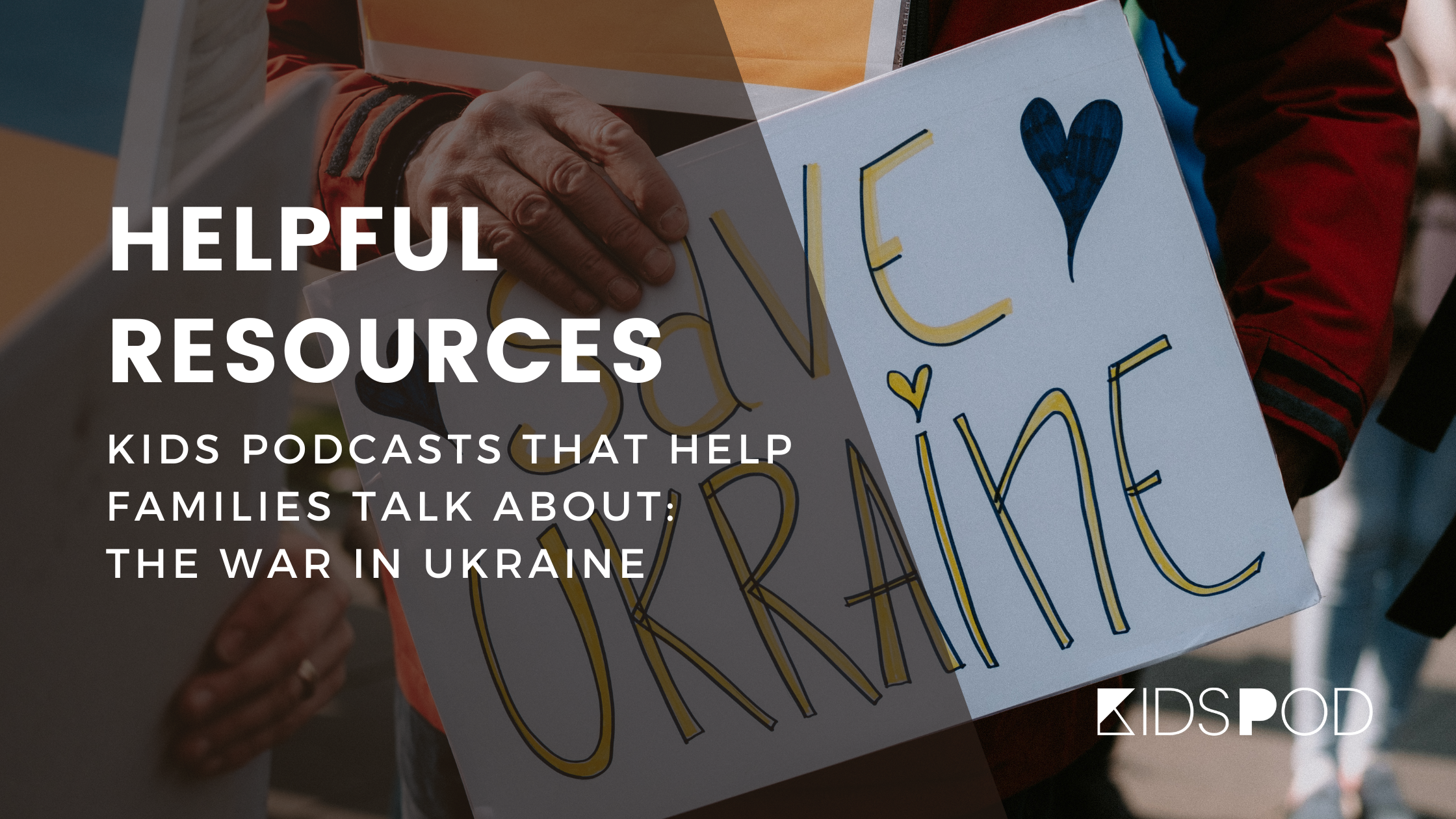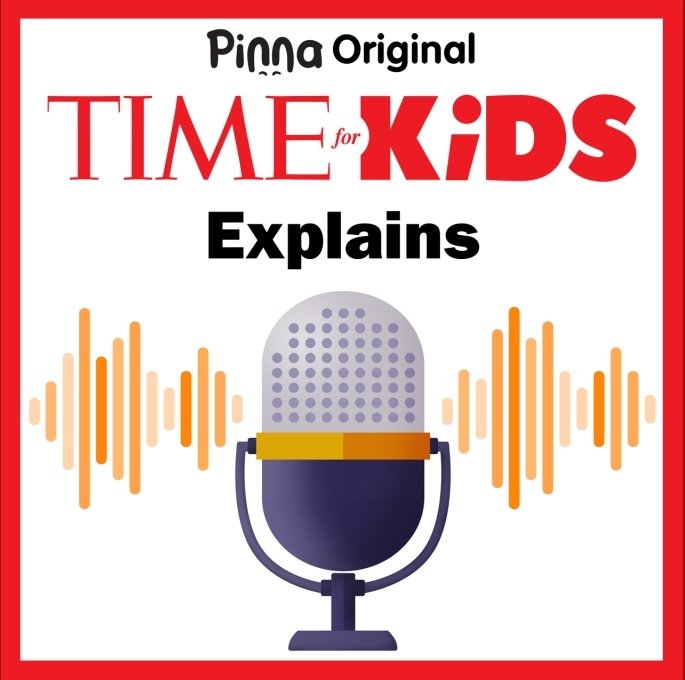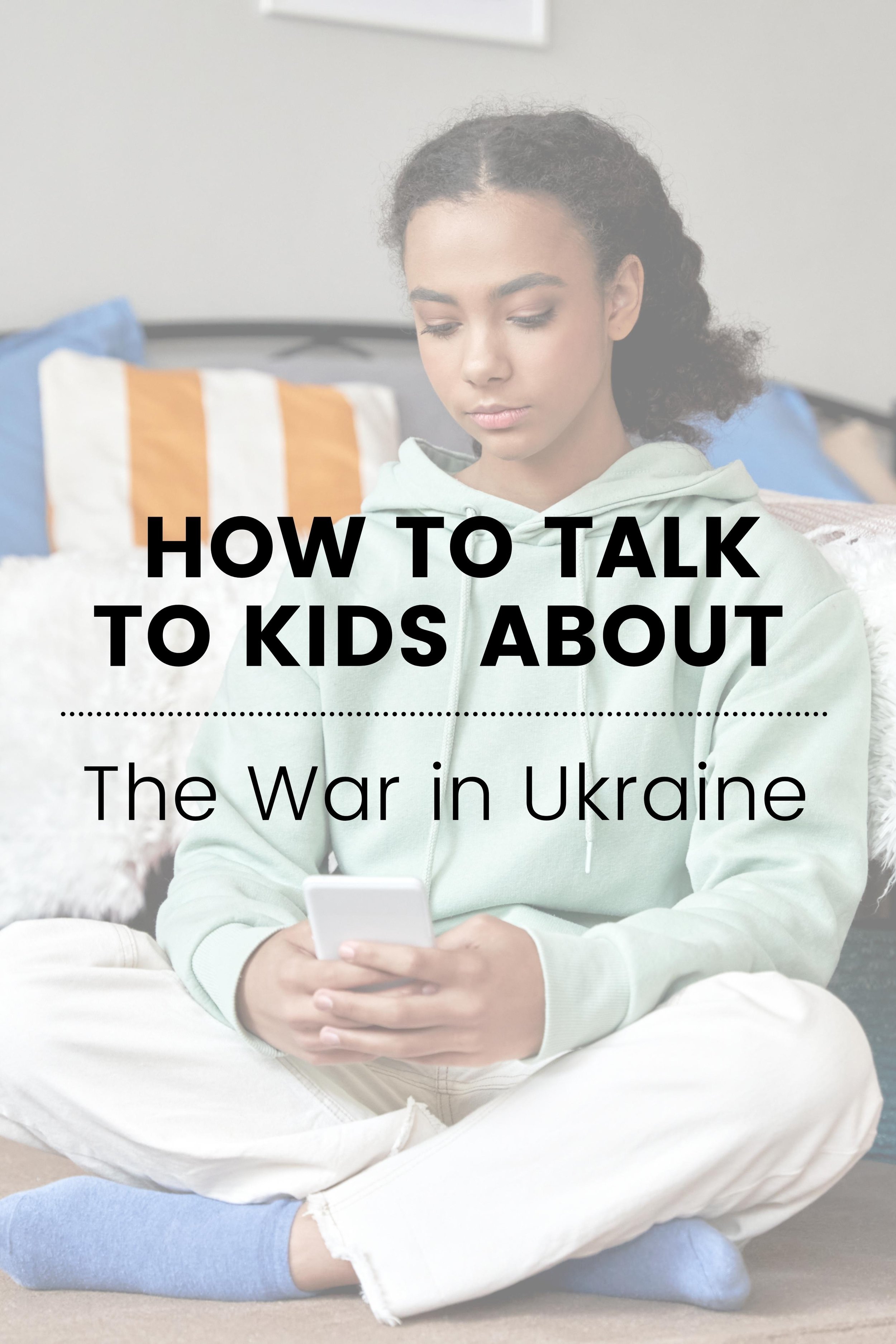Kids Podcasts that Help Families Talk About: The War in Ukraine
Plus the best resources and podcasts for parents and caregivers.
I don't know about you, but I never imagined having to have a conversation like this with my children. Our situation is a little unique as we are a military family stationed in Europe. Our community is keenly aware of the consequences of conflict near and far, and my kids understand more than most, but it's still not any easier for us to explain what is happening and why it's happening.
I've found listening to kids podcasts is one of the most valuable ways to introduce hard topics to my kids. Whether it's COVID, Black Lives Matter, or war, listening together has always prompted powerful conversations and increased connection.
Be sure to read past our recommendations. We've gathered the best expert advice on talking with your kids about the war and have summarized what we feel to be the most important tips.
Best podcasts for parents:
1. Raising Good Humans
S2 Ep 45: How to Have Hard Conversations With Kids: The War in Ukraine
https://aliza.libsyn.com/s2-ep-45-how-to-have-hard-conversations-with-kids-the-war-in-ukraine
2. NPR Life Kit
PARENTING: DIFFICULT CONVERSATIONS
What to say to kids when the news is scary
https://www.npr.org/2019/04/24/716704917/when-the-news-is-scary-what-to-say-to-kids?t=1647272183964
Aired: February 24, 2022
3. Flusterclux with Lynn Lyons
Talking To Your Kids About The War In Ukraine
https://flusterclux.com/talking-to-your-kids-about-the-war-in-ukraine/
Aired March 4, 2022
4. The Current with Matt Galloway
How to talk to kids about the war in Ukraine
https://www.cbc.ca/listen/live-radio/1-63-the-current/clip/15899307-how-talk-kids-war-ukraine
Aired: March 8, 2022
Best articles for parents:
1. The Verywell Mind
How to Talk to Your Kids About the Crisis Unfolding in Ukraine
https://www.verywellmind.com/how-to-talk-to-your-kids-about-ukraine-5220914
Publishing on March 08, 2022
2. UNICEF
How to talk to your children about conflict and war: 8 tips to support and comfort your children
https://www.unicef.org/parenting/how-talk-your-children-about-conflict-and-war
3. New York Times
How to Talk to Kids About Ukraine: Young people have access to more news streams than ever, and many are concerned
https://www.nytimes.com/2022/02/25/well/family/kids-teens-ukraine-russia.html
Published Feb. 25, 2022 Updated March 1, 2022
Best kids podcast episodes:
1. But Why?
Why is Russia invading Ukraine?
Aired on March 11, 2022
2. Time for Kids Explains
Ukrainian Invasion explained with executive editor Jaime Joyce
https://www.timeforkids.com/g34/podcast-ukraine/
Aired March 4, 2022
3. I'm Not Bored
Episode 283: Everything Your Kids Want To Know About The Russia - Ukraine Crisis
https://podtail.com/podcast/i-m-not-bored/episode-283-everything-your-kids-want-to-know-abou/
Aired: February 28, 2022
Tip #1 - Ask what they know and how they're feeling... and then listen carefully.
Find a time when you can bring it up naturally and pay them your full attention. They may have heard very little or a lot. Validate their feelings and try not to minimize their concerns. It's also a great time to potentially correct any inaccurate information they may have come across.
Don't feel like you have to have all the answers. It's okay to respond to their questions with: "You know, since it's such a complicated/big problem, I need to find out more about that. Maybe we can look into it together."
Read more from UNICEF here.
Tip #2 - Model being a responsible consumer of news.
This tip is two-fold. First, it's easier to help our children cope, if we are coping as well. Rather than staying constantly updated, maybe set aside a time and place each day to check in with what's happening. It will also help keep your kids from being exposed to the news while it's full of alarming headlines and disturbing images. Consider switching it off around younger children and be mindful of conversations you have when they are within hearing distance. Let them see what you do to calm your own fears and anxiety: listening to a mindfulness podcast for kids can be a great way to do this together!
Second, especially with older children, involve them in your news-gathering process. Show them how to distinguish between reporting and opinion writing, how to validate what you're reading across different trusted news outlets, and how you limit your consumption at times.
Read more from ConnectSafely.org.
Tip #3 - For adolescents, be mindful of their strong sense of right and wrong, fair and unfair.
Many kids will have a hard time processing why other powerful people and countries are not doing more to stop the war and help the innocent civilians in Ukraine. Work on learning together to help them process why it seems like no one is doing enough.
Tip #4 - Know that access to explicit images is greater than ever thanks to social media.
While on the ground and in the moment reporting via Twitter, Facebook, TikTok and Instagram is invaluable in many ways, it's also most likely not appropriate for children. Chances are your kids have already seen or been shown something disturbing from the war. It's a great time to talk to your kids about how they respond when they see something and to recognize that what they are seeing might not necessarily be accurate. Discuss whether it's a good idea to limit consumption at times.
Even for teens and adults, it’s probably best to limit your consumption of TV news about the war. It may be appropriate to tune in now and then, but a steady diet of bad news can lead to depression and increased anxiety. - ConnectSafely.Org
Tip #5 - Talk to older kids about what they are sharing.
We not only want to make sure they aren't sharing false or misleading information, but also teach them that not everyone may want to view violent images or read about atrocities. It's also extremely important during active conflict not to spread sensitive information, such as images of innocent civilians or prisoners of war or something that could endanger someone by giving away their location.
And lastly, don't forget to look for and become the helpers.
Nothing will help calm fears and anxiety more than learning about the good that is happening. Finding ways to engage and contribute as a family is even more powerful.
“There is no question that kids of any age will feel better once they start to take action to promote goodness in the world. Our brains are wired for that. It’s one of the most healing things we can do. It can be as simple as being kind to people.” - Dr. Annie Hempstead
Helpful Link:
Here's a great list of ways to help those affected by the War in Ukraine.












